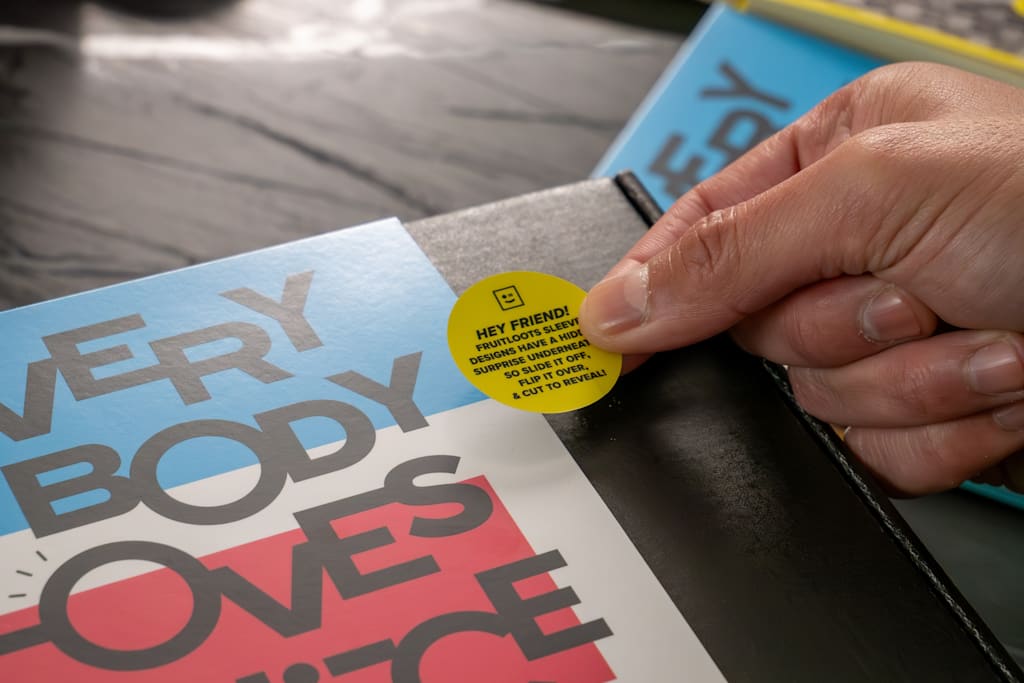How do you know if your new business is going to work? It is a question that follows small business owners everywhere. A question we hope to answer with Real Talk, where small business owners share the thrilling (and sometimes nerve-wracking) moments they knew they’d made it. In this episode we’re exploring signs of a successful business, from sudden influxes of orders to national media shoutouts.
If you’re wondering whether your business will be successful or you’re just starting out, these real-life stories will help you identify the milestones of a thriving venture.
- A successful small business is often marked by consistent demand, growing revenue and strong customer feedback.
- Knowing your “why,” having a clear plan and adapting swiftly can give you a distinct advantage.
- Don’t underestimate the power of word-of-mouth. Recommendations can quickly supercharge growth.
- Success isn’t always a dramatic moment, it can be a series of small but meaningful milestones.
Real talk: Signs of a successful business from small business owners
In this episode of Real Talk, small business owners reflect on the moments when hard work, perseverance and customer validation intersect, turning early efforts into real, successful businesses. Here are some real life signs of a successful business.
Initial signs of success
For Ashley Addison, the breakthrough felt real when she physically expanded her workspace, yet still found herself bombarded by orders. Her best business advice, “Word of mouth is the backbone of my business.”
These are classic signs of a successful small business: organic growth and a steady stream of orders that exceed your initial expectations.
Customer feedback and recognition
For Fabiola, who runs tlali•pani, the significance of customer validation came early. Getting their products recognized in Vogue, just three months after launching their website, was a jaw-dropping moment. “That was when it felt real, that we were actually a business,” she says.
Recognition from trusted sources or outlets can flip your mindset from “Will my business be successful?” to “Yes, it’s already happening.”

Source: Packing products by VistaPrint
Overcoming early challenges
Not all success stories start with a bang. Karen Blackwell of Kanda Chocolates recalls the powerful moment she received her first product shipment from Ghana. That was a tangible step forward, like crossing the starting line in a marathon. Then, the pandemic hit. It challenged her business model, but she adapted, pivoted and ultimately thrived.
The ability to stay resilient in tough times is another hallmark of a successful business. It’s about facing unpredictable challenges head-on and emerging stronger.
Realization of true potential
Sometimes success creeps up on you rather than arriving with fireworks and confetti. Several entrepreneurs agreed that there’s rarely one singular defining moment, rather, a series of events that keep confirming you’re on the right path.
Alex from WildFlora recounts a surreal “pinch me” moment working with well-known brands and coordinating corporate events for huge companies.
David from FRUITLOOTS describes receiving an email for a large order as the moment his team realized their efforts were validated.

Source: Branding label by VistaPrint
What is considered a successful business?
As we saw from the small business owners, success looks different for every business. However, there are common signs of a successful business: profitability, brand recognition, loyal customers and an ability to ride out challenges. Let’s take a deeper look at the five key factors of a successful business.
Clear strategy and planning
One of the first signs of a successful business is a strategic business plan. Write down your primary goals, then break them into specific tasks (e.g. contacting retailers, launching new products).
- Start now: Create a 90-day checklist with immediate actions like testing an ad campaign or outreach to potential partners.
Financial management and adequate capital
Successful small businesses keep a close eye on their finances. Tally your monthly expenses (rent, inventory, salaries) and multiply by three to six to see if you have a safety net.
- Funding options: Small business loans, crowdfunding or grants can boost your cash flow if your savings or personal financing won’t cover it.

Source: Branding sticker by VistaPrint
Strong leadership and skilled team
A successful business is as strong as its team. Lead by example with a small, close-knit team. Expect to wear multiple hats and make quick calls.
- Growth stages: Delegate more, hire specialists and focus on guiding your business’s bigger vision.
Understanding and serving your target market
Your business will be successful if it knows and properly markets to its target audience. Start with short online surveys or simple competitor analysis. Look at reviews or social media comments to spot market gaps and customer pain points.
Effective marketing and customer experience
To reach success with your small business, use budget-friendly, high impact marketing tactics like local collaborations and email marketing. Additionally, encourage satisfied customers to post reviews online.
Embrace the little victories
Success rarely arrives with a single trumpet blast. It’s often a collection of smaller victories, consistent profits, glowing reviews and brand partnerships that confirm you’re on track. As you move from “Will my business be successful?” to actually living it, keep refining your strategy, focusing on finances and never stop innovating to serve your customers.
Get more quick tips to get your business on the right track with these small business hacks.

Source: VistaPrint
FAQs
My friends and family like my business idea, does that mean it’ll work?
It’s awesome that your loved ones are cheering you on, but remember, they might not be your real target customers. Give your idea a proper test by talking to actual customers, collecting honest feedback and seeing if people are truly willing to pay for what you’re offering.
How do I know if I’m really profitable (and not just busy)?
Don’t get fooled by a packed schedule, profit is all about the money left after you cover your expenses. Keep track of your income and costs in a simple spreadsheet or accounting software. If you’re consistently bringing in more than you’re spending (and you’re able to pay yourself), congratulations, you’re profitable!
When should I consider hiring help or outsourcing tasks?
If you’re finding it difficult to grow because you’re stuck doing every single task yourself (hello, 16-hour workdays!), it’s time to get help. Focus on what you do best and delegate or outsource the rest, your sanity and business will both thank you.
Do I need a formal business plan, or can I wing it?
Winging it can be exciting, but having a basic roadmap keeps you from getting totally lost. It doesn’t have to be a 50-page document, just outline your goals, who you’re selling to and how you’re going to make money. Think of it as your business’s GPS. Our guide to starting a business is a great place to become familiar with key considerations when you write up a business plan.
What if growth is slow? Am I failing?
Not necessarily! Many small businesses grow slowly but steadily. If your numbers are gradually improving, like sales inching up or getting more repeat customers, you’re on the right track. Keep tweaking, learning and pushing forward. Slow growth is still growth.



